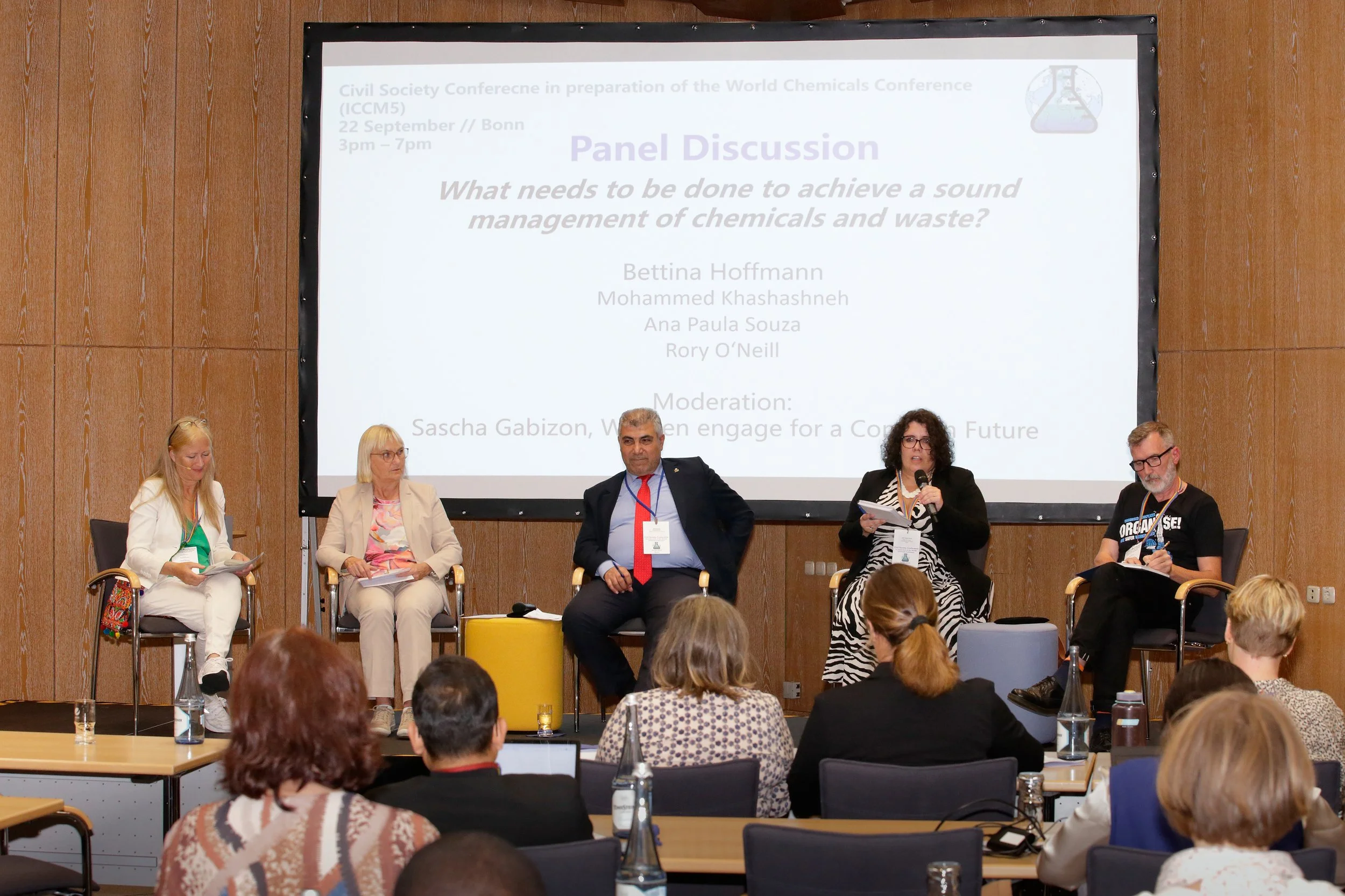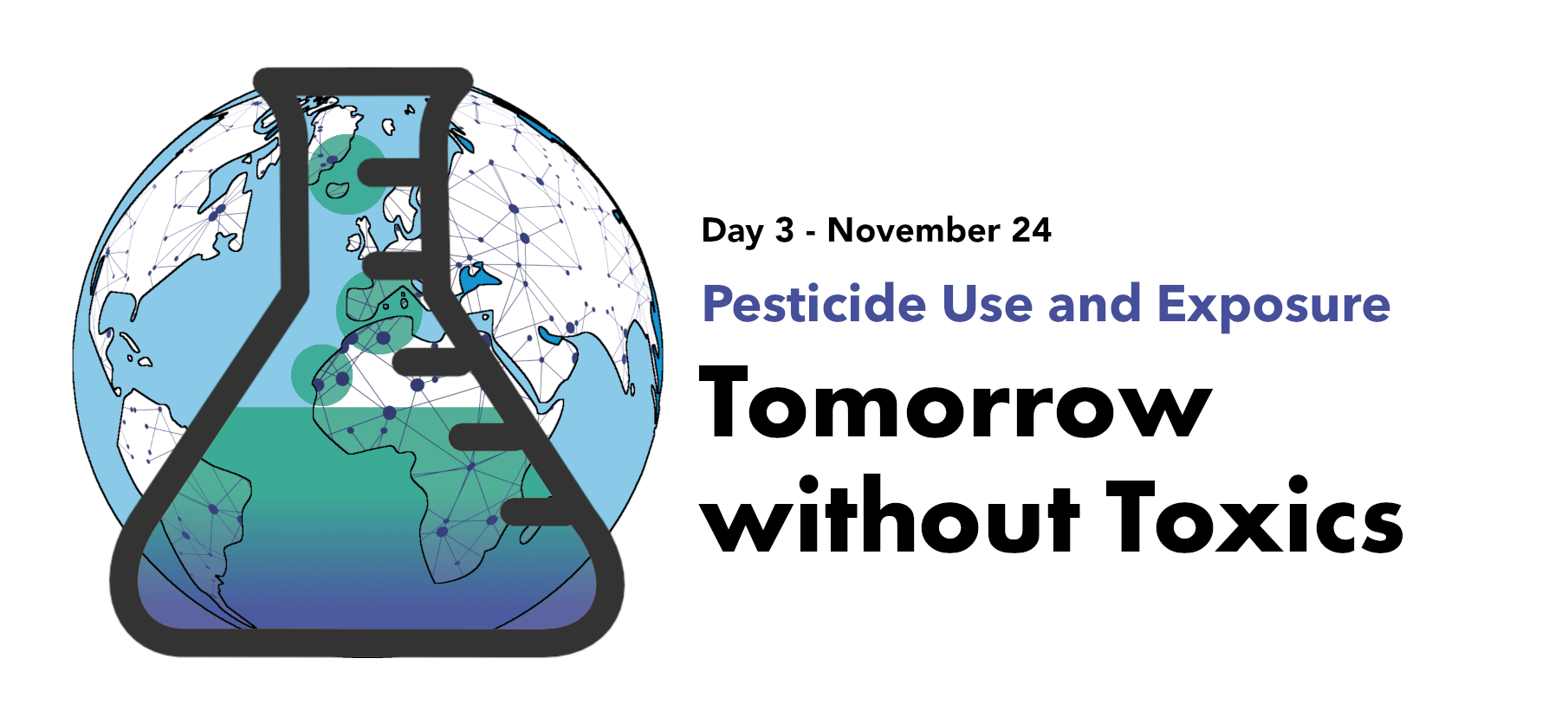In preparation and in addition to the ongoing intersessional process, we organised two civil society conferences to support civil society and work during the Covid19 pandemic and to prepare for ICCM5, which finally took place in Bonn in September 2023. The first conference "Tomorrow without Toxics" was completely virtual and took place in November 2021. Almost two years later, we organised an in-person "Civil Society Conference to Prepare for the World Chemicals Conference (ICCM5)" immediately before ICCM5 in Bonn. The interest in both conferences was overwhelming. Many thanks to all panellists, moderators, participants and funders who made this possible. Special thanks go to all German colleagues who jointly organise both conferences.
Below you can find recordings and reports of both conferences.
Civil Society Conference in preparation of the World Chemicals Conference (ICCM5)
22nd September 2023 // half day // Bonn
The International Conference on Chemicals (ICCM5) took place in Bonn on 25-29 September. Following intensive negotiations, a new framework agreement on the international management of chemicals was adopted under the umbrella of the United Nations Environment Programme (UNEP). The multi-stakeholder process involved representatives of states, academia and science, the private sector as well as international representatives of civil society, who came to Bonn for this event and other preparatory meetings. On 22 September, many of the civil society representatives gathered on the premises of the Federal Ministry for the Environment, Nature Conservation, Nuclear Safety and Consumer Protection for a half-day Civil Society Conference in preparation for the World Chemicals Conference.
Key findings:
● Chemicals are linked to exploitative economic practices, environmental degradation and pollution, and harm to human health along the entire value chain.
● The turnover of the chemical industry is enormous, but only a small fraction of this is invested in preventive environmental and health protection and in measures for the safe handling of chemicals. The "Polluter Pays Principle" is not implemented.
● We need a vision that, like the Paris Climate Agreement, contains clear guidelines and a target. A purely voluntary approach is not nearly enough, as responsibility for future generations and a world worth living in is our duty today.
● There are very good, safe methods and options for application as well as non-chemical solutions that make the use of chemicals that are hazardous to health and the environment unnecessary.
● Harmful chemicals threaten many stakeholders, but too few of them are represented in international negotiations.
You can find a full report on the conference here:
Thank you for joining!
Manuel Fernandez, BUND – Friends of the Earth Germany
Florian Schulze, European Network for Environmental Medicine
Tom Kurz, German NGO Forum on Environment and Development
Alexandra Caterbow & Olga Speranskaya, Health and Environment Justice Support
Susan Haffmans & Susanne Smolka, Pesticide Action Network Germany
Johanna Hausmann & Clara Kraske, Women Engage for a Common Future
In November 2021, more than 400 people gathered for the virtual civil society conference "Tomorrow without toxins". Below is a summary of the conference and the conclusions of the main panels that took place each day.
The conference is funded by the German Ministry for the Environment, Nature Conservation and Nuclear Safety. The funding is provided by resolution of the German Bundestag.









